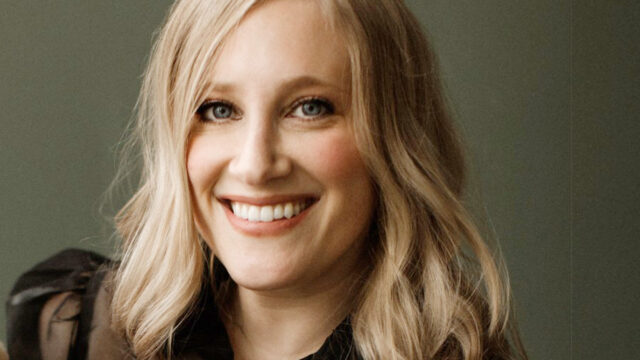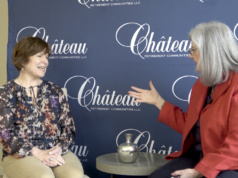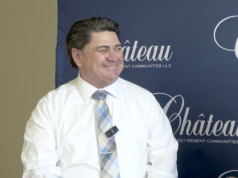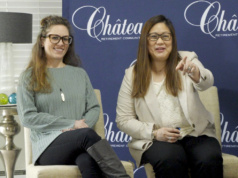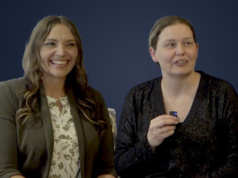Suzanne: And welcome everyone back to Radio Network with the amazing team from Era Living. And I am so excited to talk to this next guest and this lady’s name is Mallory Mixdorf, and she’s the Era Living Resident & Family Supportive Programs Director. In other words, you kind of oversee the mental health and the wellness side of Era Living. Is that correct,Mallory? And welcome.
Mallory Mixdorf: Thank you so much. It’s my pleasure to be here. Yes, that’s correct. In a nutshell, I support all of the community counselors at Era Living in their role, which is providing mental health support and resources for our residents.
Suzanne: That’s amazing. And obviously mental health is a huge thing. It’s a life change when you move into senior living. What do you usually find where residents are, when they’re first realizing that they’re moving, they may have to make a move just due to circumstances, maybe not being able to live alone anymore?
Mallory Mixdorf: Yeah, I think it really runs the gamut. We have some residents who move in really excited. They’re ready for the change. They’re ready to let some things go off their plate, let some responsibilities go, and really just enjoy the rest of their retirement. So that’s kind of one end of the spectrum, right? Folks who are really vibrant, ready to just kind of do more leisurely activities and things that bring them joy. And I have the other end of the spectrum of residents, who are just sort of learning that they are kind of at their capacity for things they can do for themselves, and that we can do for them and that they need that extra support. So each community is different, but that’s generally the spectrum we see, is people who are really ready to go with this next stage and folks who are kind of holding on still.
Suzanne: I always say, whenever there’s a change, unless the fear remains, overwhelms, the fear of stepping out into their mind of the unknown, there’s going to be that hesitation. And we talk about a lot about that with families and the fact that it’s a scary thing to leave something that you’ve always known and that yet there’s this stereotype in the senior living world. People view senior living as something where you’re losing your independence, which really is not the case. How is that handled in your organization?
Mallory Mixdorf: Well, I think Era Living’s really good about respecting the points of view of our residents. So if that’s how resident feels, we listen. They have a right to feel that way and they may have been sort of geared up to feel that way for a long time, their society standards and stereotypes, their stigma. There’s things our friends or family might have said maybe in the best of intentions, but may not have landed in the right way. And so they’re kind of coming from this combination of factors that makes them feel like this move means that they’re losing their independence or autonomy. I think just creating that space at first to listen and just hear them out, and then, from there, I think one of the great things that Era Living can do and does do for our residents is we match up all of our new residents with what we call an ambassador. So you may have heard about this a little bit from Life Enrichment already. But they pair up new residents — who maybe are not sure about this transition, what they’re getting themselves into — and they meet with a resident who really knows the ropes and has taken advantage of all of the amazing opportunities in their community, to show them that it’s not the end, it’s just a new beginning, a new stage of their life.
Suzanne: I’m just curious, what are some of the fears most common that you find with residents?
Mallory Mixdorf: That they’re gonna get forgotten about by their friends and family, that maybe they won’t find peers or contemporaries that share the same interests, that they’ll get bored or lonely. Or that they’re losing some sort of skill or self-preservation in their own life.
Suzanne: Everything is new. Even a positive change can be scary, because you don’t necessarily know what happens. And I know you guys are really good about when you tour the community — come have lunch, take some time — and everybody moves in their own pace too. I’m sure that’s a piece of it as well. Is it not?
Mallory Mixdorf: Yeah. Just taking the pressure off, letting residents come, see for themselves, make up their own opinions. Just giving them an open feel to learn about what’s available.
Suzanne: And then you have ambassadors, do you tend to find people that have commonality with them? Is it how do you work that process?
Mallory Mixdorf: Yeah. Typically the Life Enrichment department will try to match up a more seasoned resident who maybe shares some of the interest that our community relations team has learned during the interview process of getting the resident on board. So it’s really a warm handoff from community relations to Life Enrichment. My department can help with that as well, the social services, but learning what residents what brings them joy and makes them tick and connecting them with another resident who maybe has some of those shared interests of themselves and someone who’s thriving there.
Suzanne: I remember when my mother first went to assisted living and she had a doll collection. And it was so amazing because my mom was worried that she wouldn’t have — we had a small apartment. She had all these dolls. Not only did their staff build a ceiling shelf like a plate rail so that she could put her dolls all around her apartment. But she also was able to have some in a display case in the lobby. And they actually said these are her dolls, and this is what she does. And it was like a wonderful way to engage in conversation, and she found people that knew her, that had that commonality because of that. And that takes a lot of mindfulness, to think about when you have a new resident coming in, how can you honor them in the best way. And I was, I loved that they did that. You guys, I’m sure, do similar things.
Mallory Mixdorf: Yes. Absolutely. I know one of the communities, we have a harpist, so we give her plenty of opportunities to play the harp for different events that we have. We have other residents who like to tell stories. So we have a talent show every year, and residents can come and watch all their stories or show off their other talent. So it’s really about highlighting what’s making these residents unique and giving them the space to show off.
Suzanne: Having the ability to be honored and appreciated for what you do, it’s such an amazing step. And the fact that you take the time to learn that I know is so important. So, they move in, what do they find most surprising about the experience?
Mallory Mixdorf: I think they actually find a lot of residents come in with the fear of letting go of some of their routine, their day to day, and what they do in their previous homes, or maybe they’ve lived for decades. They come in kind of holding on and then they realize, oh, I can let go and create space for things that bring me joy, as opposed to things that I was holding on to because I had to do them, because no one else would help me. So it’s creating more space in their day for things that make them happy is a big surprise.
Suzanne: It’s so amazing when you move into senior living, you’re not cooking anymore like you used to. So, it’s like you don’t need to bring all these these Cuisinarts and food processors, and all of these, unless that’s a big part of your day. But the thing is, is that I think people are so used to this complicated life, and they come in and you don’t have those concerns anymore. There’s so many things that you don’t have to do, but there’s this void, that you have to think it’s ok to feel that way. I’m sure there probably is that adjustment. Could you tell me a little bit about how that process works?
Mallory Mixdorf: Yeah, I think Era Living attracts a lot of really interesting residents, people who’ve had really interesting careers, life paths. We have a lot of creatives, artists, and so people come in, and they try to keep that same identity but put it into a new location, right? Into a nice background. And so it’s really just kind of getting it to the core. Staff are really good about learning what makes residents who they are, and then pulling that out of them, so that we can make the space most comfortable for them. Whether it’s if a resident was an artist, we give them the opportunity to teach art classes to other residents. So just finding what makes a resident happy and then giving them the space to thrive.
Suzanne: Well, and it’s also a sense of purpose. When you feel like you’re responsible to be an ambassador, or to be something like that, all of a sudden it’s like I’m contributing here. My life is being enriched because of what I do and who I am. And I think that’s really that well-being that you can really extend outward, more so than living alone. When you meet with the families, they learn a lot of things about their loved one since they don’t have the day to day things happening. What are you finding with that?
Mallory Mixdorf: Yeah, I think there’s family dynamics that we all have in our own family units and family systems. And so oftentimes we know our parents as our parents, we don’t really know them as anything outside of that role. And so if you take a step back and watch them interact with their peers, you see the side of them that maybe you didn’t see before, more interests or sense of humor that you didn’t see, or any other opinions that maybe they kept to themselves until now they feel like they can let go and share the opinion. So I think a lot of times, families are pleasantly surprised by how multifaceted their loved ones are.
Suzanne: Yeah. And that’s the thing I think that’s so important. So, Mallory, in closing, Era Living does amazing things. You guys have eight communities throughout Greater King County [Seattle, Washington], I guess I should say. Could you give me a little bit of information about where you’re located?
Mallory Mixdorf: Yes, like you said, we have eight total communities, four of which are in Seattle proper on the north side of the city and four of which are in very close neighboring suburbs. One in Issaquah, one in Bellevue, one in Renton, and one in Mercer Island. We kind of cater to the different communities. And each Era Living community really has its own culture that it pulls from the different neighborhoods it’s in. That’s the short of it, in the Seattle area, four in the city, four in the suburbs.
Suzanne: If somebody’s interested in your community, how do we reach you?
Mallory Mixdorf: Lots of different ways. But I would say the two easiest ways are to find us on Facebook, Era Living, or on our website, which is just www dot Era Living dot com.
Suzanne: Mallory. It’s been so great talking to you, and we’re gonna come back and talk to you again very soon. So everyone, I really am excited about working with Era Living, because as you listen to these podcasts, this is really about understanding the different aspects and everything that goes into senior living. We’re excited to provide you with this information, and we’ll be right back right after this.






